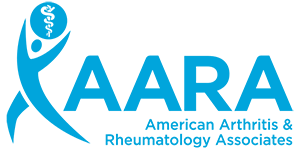Rheumatoid Arthritis
What is Rheumatoid Arthritis?
Rheumatoid arthritis is a chronic inflammatory disorder that primarily affects the joints. It occurs when the immune system mistakenly attacks the synovium, which is the lining of the membranes that surround your joints. This can lead to pain, swelling, stiffness, and loss of function in the affected joints.
Rheumatoid arthritis often affects joints on both sides of the body, such as both hands, both wrists, or both knees. It can also cause problems in other parts of the body, including the eyes, heart, lungs, and blood vessels. The exact cause of rheumatoid arthritis remains unknown but genetics and environmental triggers may play a role.
Treatment for RA typically includes medications, physical and occupational therapy, lifestyle changes, and sometimes surgery. Early diagnosis and treatment are crucial to managing symptoms and preventing joint damage.
What are Symptoms of Rheumatoid Arthritis?
Those with rheumatoid arthritis experience joint pain and swelling, particularly in the hands, wrists, knees, and feet. Morning stiffness lasting longer than 30 minutes is another common sign of rheumatoid arthritis. Fatigue, fever, and loss of appetite can also accompany joint symptoms. Sometimes, rheumatoid arthritis affects other parts of the body, leading to issues with the eyes, lungs, or heart. Progression of this disease may vary. Once diagnosed, a treatment plan should begin as soon as possible.
What are the Treatment Options for Rheumatoid Arthritis?
Currently, there is not a known cure for rheumatoid arthritis. Therefore, when treating rheumatoid arthritis, a combination of managing symptoms and slowing the disease progression will be the goal.
- Medications – there are several medications traditionally used for treating rheumatoid arthritis, such as disease-modifying antirheumatic drugs (DMARDs), nonsteroidal anti-inflammatory drugs (NSAIDs), biologic agents, and corticosteroids.
- Therapies – using a combination of physical therapy and occupational therapy can help improve strength, flexibility, and help protect your joints.
- Lifestyle – changes to your overall daily health routine may include exercise to keep your joints moving; diet re-balance and stress reduction routines such as meditation, yoga, and breathing techniques to assist in managing symptoms.
- Surgery – while not a common treatment option with rheumatoid arthritis, surgical options exist for the severest cases and may include joint replacement or synovectomy (removal of inflamed joint lining).
Living with a Rheumatoid Arthritis Diagnosis
Many patients ask, “How can I live a normal life with rheumatoid arthritis?”. While the answers vary based on progression and lifestyle, you can improve your quality of life by getting this disease activity under control. In working with your physician and following your treatment plan, you can manage your symptoms daily. In managing your symptoms, you can greatly affect your everyday life and overall wellbeing.
Patient Care is our Priority
While there is not a known cure for rheumatoid arthritis, you can improve your prognosis through medications, lifestyle changes, and regular exercise. Finding the right balance is key, and we understand that living with this disease is not easy. Dr. Carter, along with the staff at Recovery Rheum, are here to help you every step of the way.






